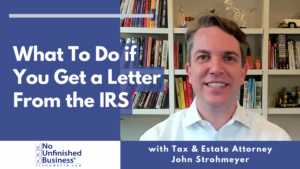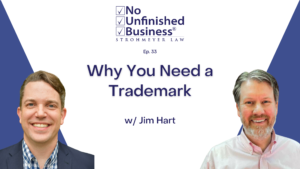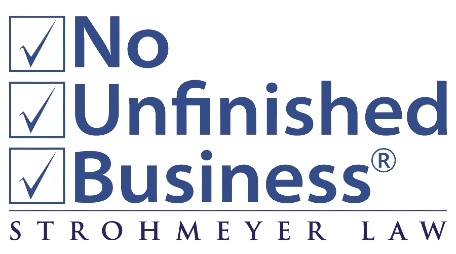The Four Horsemen of the Estate Planning Apocalypse
THE FOUR HORSEMEN OF THE ESTATE PLANNING APOCALYPSE
I’ll explain the dangers and flat-out financial and time costs of these sinister enemies that come with a death and ensuing probate if you don’t have the proper estate planning.
The First Horsemen: Loss of Assets
If your plan is incomplete, your assets are not safe from creditors, the government, or even unwanted family members. Your family might not even know some of your assets exist, let alone where to find them!
Now, one of the biggest problems in probate is finding assets. Think about it—if you passed right now, would your family know where to find your stuff? Here’s how we can limit Loss from upsetting your plan.
Do you have a list of your assets? It doesn’t have to list the exact, to-the-penny balances, but a rough list of where everything is located so people can actually find your stuff is a first step.
Do you have any digital assets (like photos, accounts, domains, NFTs, or cryptocurrency) that should be preserved? (We need to know where these things are to save them. Or maybe just need to know to delete your Ashley Madison account.)
Have you checked Unclaimed Property? (There’s a lot of unclaimed property out there, possibly yours. Go get your stuff.)
Does an advisor or family member have a list of all your financial accounts? (Financial Advisors don’t always have the full picture, and just focus on the accounts they manage. But we don’t want to lose those accounts.)
Are there any assets you haven’t identified, like points and miles? (Again, don’t leave anything out.)
Do you have a safe deposit box? (There’s no automatic record of it, so we need to know about it before you can’t tell us)
The Second Horsemen: Family Frustration & Delays
An incomplete plan invites even more stress into the situation in the form of frustration and delays.
The Third Horseman: Future Fights
Are there any people who could cause problems when you’re not here by challenging your plan?
The Fourth Horseman: Future Costs & Taxes
The end of a loved one’s life is an incredibly difficult time for the family. A complete plan makes sure they’re left with the greatest benefit possible.
There will be some costs, but if you know what’s coming, you should be able to minimize or eliminate some of those costs now. You shouldn’t have to pay more than you should. What are the unexpected costs? The unforced errors?
Ask yourself:
If you have a plan, when was the last time your Last Will/Trust was reviewed? (We want it to still work!)
When was the last time you confirmed your beneficiary designations on all your accounts? (Like the Last Will, this is important to be sure the plan works.)
What are the expected income tax consequences of your death? There are many things that change for income tax purposes when you die, and your beneficiaries may be paying more in income tax if your plan has certain mistakes.
While most people aren’t thinking about estate tax right now when the exemption is $12.06 million per person, that amount is going to come down in a few years. And planning for that change now should be part of your plan, even if you don’t have the seven Porsches and manicured gardens.
Have you included all the life insurance death benefits when determining if the estate tax will be an issue? (That’s a big issue in not evaluating tax exposure. The death benefit is subject to Estate Tax, even if it’s not subject to Income Tax.)
In Summary
Now, not every one of these questions will be an issue for you and your family. And this isn’t a complete list of everything thing that could go wrong. But what you’ll see is that there are many ways to address your issues, and it’s better to address them while you’re still alive.
And the best way to do that, the best protection against the Four Horsemen of the Estate Planning Apocalypse is an estate plan tailored to you, your family, and your unique needs.
End-of-Year Strategies for Irrevocable Gifting Trusts
As the year draws to a close, there are some crucial actions to take with an irrevocable gifting trust.
What to Do If You Receive an IRS Letter
Receiving a letter from the IRS might send shivers down your spine. So what's your first step? Is it always a cause for alarm? Let's walk through what you should do.
Why You Need a Trademark
We'll explain the the four main areas of intellectual property for business owners, why trademarks are crucial, and how to get your marks registered.





